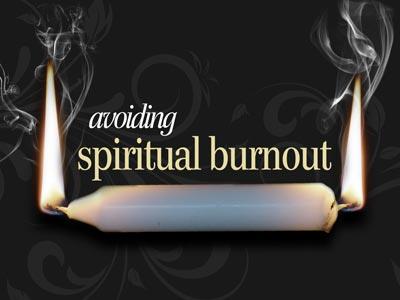-
When It's Almost More Than You Can Bear
Contributed by Scott Chambers on Nov 28, 2017 (message contributor)
Summary: A study of grief from the life of Job.
As a minister I have conducted quite a few funerals and have witnessed hundreds of people grieving over the loss of a loved one. It is especially difficult to conduct a funeral for a member of your own family who has passed away. I remember when my mother passed away unexpectedly she had requested that when she did die that I would do the funeral. However I never expected it to be so soon. Though the loss of a loved one is the most common and painful type of grief, we mourn for many different reasons. Since there is one character in the Old Testament who experienced just about all those reasons for grief. Let’s study the life of Job before we discuss the promises from God in those times of grief. Perhaps no one in history had more reason to mourn than Job did. He experienced a series of tragic losses that could only be brought by the devil himself. God gave Satan permission to test Job for a time so Satan could find out just how faithful Job was to God. If you are like we you wonder just how Job was able to make it through. I wonder if it ever came close to being more than he could bear. Let’s look at Job’s and discover God’s promises for us during times of grief.
I. The reasons Job had to grieve.
A. Job lost all of his wealth.
1. Up to this point Job had been a very rich man.
2. He owned 7,000 sheep, 3,000 camels, 500 yoke of oxen and 500 donkeys.
3. Using today’s market Job’s livestock was worth more than six million dollars.
4. He had scores of employees who watched over all of his investments.
5. Violent crime and natural disaster had robbed Job of nearly everything. (Job 1:13-17)
6. Job had no insurance to replace his belongings and there was no hope for a lawsuit.
7. In one day Job went from the penthouse to the poor house.
8. He lost all his wealth and all the employees who had faithfully worked for him.
B. Job lost all of his children.
1. Job had seven sons and three daughters.
2. Job loved his children deeply and was constantly praying for them.
3. The same that Job had lost all his wealth an even greater tragedy happened. (Job 1:18-19)
4. Evidently a tornado struck the house of Job’s oldest son kill all ten of Job’s children.
5. So Job is forced to deal with the most difficult type of grief one can feel magnified ten times.
C. Job lost his health.
1. You think losing his wealth and children would be enough but Satan hit Job one more time by taking away his health.
2. Satan argued that Job was a selfish man and the only reason he made it through the tragedies was because he had not been personally touched.
3. Satan was wrong. Any loving father would rather suffer themselves then have their children suffer or be lost.
4. Job had already withstood the most difficult test, but Satan insisted. (Job 2:7,8)
5. A loss of health not only leads to discomfort and pain, but often to other important elements of life: freedom, recreation and perhaps even close friends.
6. Job had reason to grieve because his wealth, children and health all had been taken away from him. (Job 3:3-26)
7. Job never turned his back on God because he knew that even in times of trial God would always be true to His promises.
II. God’s promises to those who grieve.
A. Grief is inevitable and there is a normal cycle we all go through when we experience a loss.
1. There is a time for everything, and a season for every activity under heaven: a time to be born and a time to die, a time to plant and a time to uproot, a time to kill and a time to heal, a time to tear down and a time to build, a time to weep and a time to laugh, a time to mourn and a time to dance, (Ecclesiastes 3:1-4)
2. At first the news seems unreal. You are stunned and you go through a time of shock.
3. When the shock wears off a grieving person goes through denial.
4. As reality begins to set in you become tempted to become angry.
5. Some say that the mourning process can take up to two years and the stage of acceptance is perhaps the most difficult to enter in.
6. This process ends as you finally arrive at the point where accept the loss as a part of your life and return to a normal existence.
B. When those times of grief come, remember that God promises to comfort you.

 Sermon Central
Sermon Central



